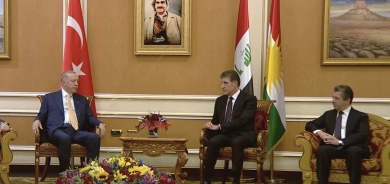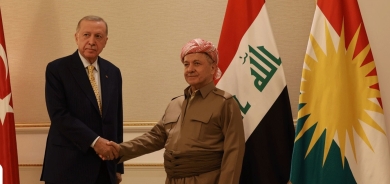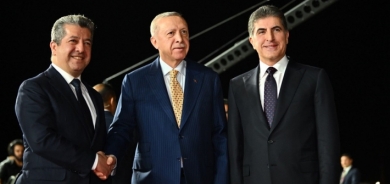Richard Caplan: Leadership is important for any major political initiative, including but not limited to nation building
February 5, 2014
Exclusive Interviews

Richard Caplan is Professor of International Relations and Official Fellow of Linacre College. His principal research interests are concerned with international organisations and conflict management. His current research is focused on post-conflict peace- and state-building. He recently completed a project on 'Exit Strategies and Peace Consolidation' that examined the empirical experiences of, and scholarly and policy questions associated with, exit in relation to four types of international operations where state-building has been a major objective: colonial administrations, complex peace operations, transformative military occupations and international administrations.Gulan: Nation building process is one of the sensitive phases in the life of any nation in which nations try to rebuild an important infrastructure of national identity. In your opinion, do you think that national affiliation is important for nations during a nation building process?
Caplan: It is important to distinguish between the nation (a community) and the state (a territorial entity with international standing). Many states have been created in the absence of a shared sense of national affiliation. The title of a scholarly book on French nation- and state-building—Peasants into Frenchmen (Eugen Weber)—reflects that experience. Many ‘Frenchmen’ had little or no sense of national affiliation in the 19th century: only gradually did their sense of national affiliation, or national identity, develop—long after the establishment of the French state. France is not alone in that regard. However, many nation-building experiences, especially more recently, have been fuelled in part by a strong sense of national affiliation.
Gulan: The nations which have been successful in the nation building phase, they have certainly had charismatic leaders who have united the abilities in order to make the process succeed. In your opinion, to what extent is the existence of a symbolic leader important and does the leader become a positive factor for letting the process succeed?
Caplan: Leadership is important for any major political initiative, including but not limited to nation building. Consider the Affordable Care Act, otherwise known as ‘Obamacare’, in the US: passage of that legislation required effective leadership on the part of the US President and his allies in the US Congress. However, while there have been leaders whose charisma has been a valuable asset, charisma is not a requirement for nation building. A clear vision or sense of purpose, a strong commitment to that vision or purpose, and popular support for nation building can matter more than charisma. Charisma can be important where the political initiative requires considerable effort and sacrifice on the part of a people: charisma can help to sustain a people’s faith in the ‘national struggle’ in such circumstances.
Gulan: in most of the processes, we see a nation building process usually starts within a part of a nation, and is not seen in the other parts. For example, North and Southern Korea, China and Taiwan -- we see that nation-building processes have been successful in South Korea and Taiwan, but it hasn’t been so in China and North Korea. To what extent will a success of part of a nation have an impact on the whole nation?
Caplan: Many Koreans—north and south—desire unification, as do the Chinese in China and Taiwan. In that respect there are shared aspirations for the nation, although they may differ in their visions of the unified nation. It is also important to bear in mind that South Korea and Taiwan are societies that allow for greater freedom of expression; the Chinese in China and the Koreans in North Korea are subject to greater restrictions. It is true, however, that national aspirations may be more strongly felt among some population groups and some regions in a state or territory.
Gulan: What is noticed during nation building processes is that meanwhile, democracy development process has not started. Say, in the eastern Asian countries and also in Chili, Costarica and Latin American countries. Do you think is it possible for a nation building process to begin before democracy development process?
Caplan: It is certainly possible for nation-building to begin before democratic development is under way. Historically, nation-building has often been achieved in the absence of democratic development—in Latin America, for instance. However, nation-building is not antithetical to democracy unless nation-building is pursued in a manner that is authoritarian, intolerant and exclusivist, as was German nation-building under Hitler, to give one example. In Quebec and Scotland today we can see nation-building taking place within a democratic context. Of course, there may be tensions between communal values and individual values, and those tensions may be resolved in favour of the community, but that does not make nation-building anti-democratic.
Gulan: In the Oslo agreement in 1993, it was decided to let Palestine become a state, and United Nations approved that. So, why couldn’t Palestinians succeed in a nation building process during the last 20 years?
Caplan: I do not share your interpretation of the Oslo Accord: in signing the accord Israel did not agree to the establishment of a Palestinian state. However, the simple answer as to why Palestinian nation-building has not been successful is that the Palestinian territory is occupied by Israel and has been for the past 20 years. Israeli occupation may not be the only factor inhibiting Palestinian nation-building—there are also political divisions among the Palestinian people and its leadership that inhibit nation-building—but the Israeli occupation has been the most significant factor.
Gulan: All the countries in the Middle East are passing through a nation building process at the moment. Yet, it is not predicted for Middle Eastern countries to succeed like the Middle and Eastern European countries did after the fall of Berlin Wall. What is the difference between Middle Eastern countries and Middle and Eastern European countries?
Caplan: Central and Eastern European countries have benefited from their proximity to and support by the European Union (EU). Financial and technical assistance from the EU and, most important, the prospect of membership in the EU, have been major contributing factors to the development of democratic and market-oriented states in Central and Eastern Europe. Many of these states—such as East Germany, Hungary and the Czech Republic—have had prior experience with democratic rule and market-based economies. There is also a strong pre-existing sense of national identity among the populations of these countries; indeed, the struggle against Communism (and Russian domination) was for many a national struggle.















